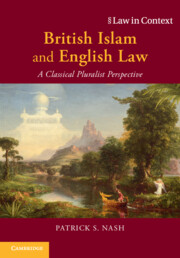8 - Clans
from Part II - Practice
Published online by Cambridge University Press: 02 December 2021
Summary
This chapter analyses the nature, functioning and regulation of Muslim clans. It begins wih a history of the regulation of endogamy in England, as clans are held together through consanguineous marriage and the prohibited degrees of relationship are the most relevant branch of law. Then it analyses the clan as a group unit with negative implications for public health and the nation’s social and political fabric. The point is to demonstrate that clannish behaviours, which present most prominently among British Muslim populations, are the product of a set of institutional norms rather than manifestations of any supposedly inherent ethnic, cultural or religious characteristics. The chapter’s theoretical discussion observes that liberal individualistic approaches tend to focus on rights and demographic statistics while ignoring the clan phenomenon itself, while multiculturalism tends to insist on the integrity of minority cultural forms, over-emphasising the positives and evading difficult questions about the place of clans in the UK. The pluralist response focuses squarely on clans as group entities and constructs the legal argument for their dissolution through marriage law reform.
Keywords
- Type
- Chapter
- Information
- British Islam and English LawA Classical Pluralist Perspective, pp. 257 - 297Publisher: Cambridge University PressPrint publication year: 2022

